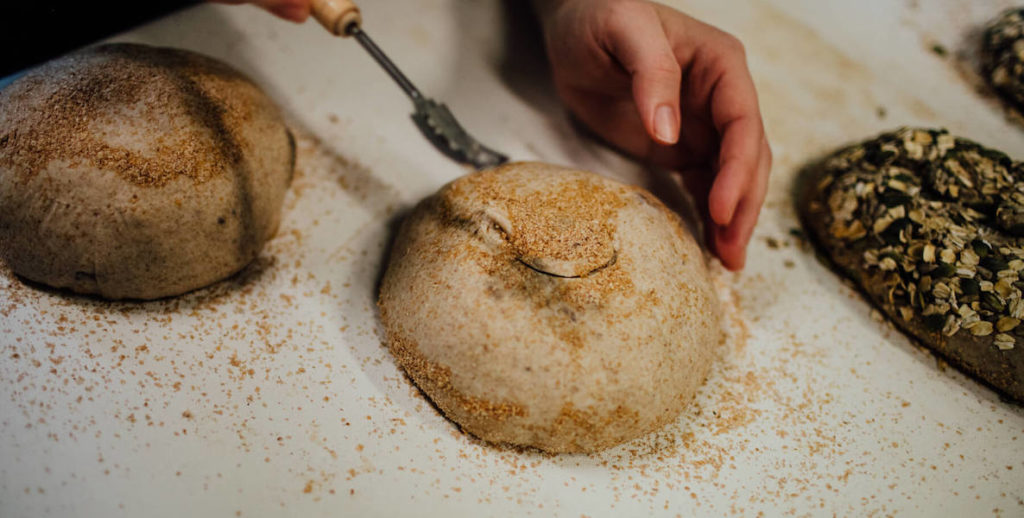In Philly, every food group has its local devotees.
From Jersey tomato enthusiasts to Lancaster dairy diehards, our cultural obsession with food has cast a particularly bright spotlight on local fruit, veggies, meat and cheese. Grains, on the other hand, have for years been overlooked.
![]()
As Philly prepares to kick off the annual Philadelphia Grain & Malt Symposium, a project led by Glen Mills-based Deer Creek Malthouse, on Monday March 2 at University of the Sciences—an industry event that targets professional bakers, brewers, maltsters and distillers—the rest of us can mark our calendars for Sunday, March 1, for the first-ever Grain Train at Craft Hall.
A celebration of locally grown grains—and the wide-ranging cuisines in which they’re used—the event will include food and beverage tastings, workshops, a pop-up market, and the chance to meet the farmers behind some of our region’s most beloved unsung grains, and the bakers, chefs, brewers and distillers who are relying on them in unique ways.
Sessions will include a look at empanadas led by Jezabel’s Argentine Cafe and Bakery; spelt cake and knishes with Small Valley Milling and Lost Bread Co.; fougasse with Castle Valley Mill and Ursa Bakery; brewing with local malt by Keystone Homebrew Supply and Deer Creek Malthouse; and more.
“Eating locally-sourced grains should make you feel different, should make you feel better, and should support the people around the community.” says Judy Ni, chef and owner at Baology.
“There’s no better way to eat, I think, than knowing where your ingredients are coming from and how they’re being raised,” says Judy Ni, chef and owner at Baology, the acclaimed Taiwanese restaurant on JFK Boulevard and 18th Street.
At the Grain Train, Ni will lead a workshop to show how using different types of flour (milled by Lost Bread Co.) in her longevity noodles affects their taste, look and bite, or what in Taiwanese is referred to as “Q.”
“Too often we make food some sort of really fancy, elitist thing. But noodles are something that I think are really approachable,” she says.
She wants people to understand that food should taste different depending on the origin of its ingredients.
“There should be a personality to your food. Just like wine from every single year should taste different, so should grains, because they’re living things, grown in a living earth. Eating locally sourced grains should make you feel different, should make you feel better, and should support the people around the community.”

The Grain Train is a collaborative event organized by local grain leaders including All Together Now PA’s Grain Coalition, an initiative spearheaded by Citizen managing editor Katherine Rapin, herself a grain aficionado.
In addition to her role at The Citizen, she has been publishing captivating monthly zines devoted to the exploration of different grains in collaboration with Lost Bread Co.—the Philadelphia bakery founded by her partner, Alex Bois.
Rapin has a gift for keeping even the most grain-avoidant rapt with her impassioned soliloquies about, say, sorghum or spelt, and throws herself wholeheartedly into her ongoing grain research. “I always start by investigating what point of connection a grain may have to Philly, and which local experts I can talk to,” she says.
While researching wheat at a West Philly outpost of the Free Library, she delved into 19th-century encyclopedias and learned about Philly’s history as a flour capital; our early economy was built on the industry.
“Long ago, there were mills all along the Wissahickon,” she says, explaining that farmers would drop off horse-drawn wagon loads of grain to the millers, who would distribute to Philadelphia markets and ports. “Philly was a hub, and was actually shipping flour and grain all over, to Europe, Africa and the West Indies.”
Rapin is determined to open Philadelphians’ eyes to the overlooked aspects of grains—from their unexpected presence in nearly every culture, to their environmental benefits. They sequester carbon and are often used as a cover crop to bolster soil health and prevent erosion—to their nutritional value and relative affordability.
Mark Brault, chief maltster at Deer Creek Malthouse, is excited to expand the Grain & Malt Symposium’s reach with events like the Grain Train. “Hopefully people see that grain is more than just barley, wheat and rye, and that there are so many applications of grains and all types of specialty grains that can be used for food and beverages,” he says.
Speaking like the veritable grain sherpa she is, Rapin implores Grain Train attendees to embrace grains with gusto. “Have fun learning about this as an entry-point into new food discoveries.”
Sunday, March 1, 6-9pm, $30, Craft Hall 901 N. Delaware Avenue

